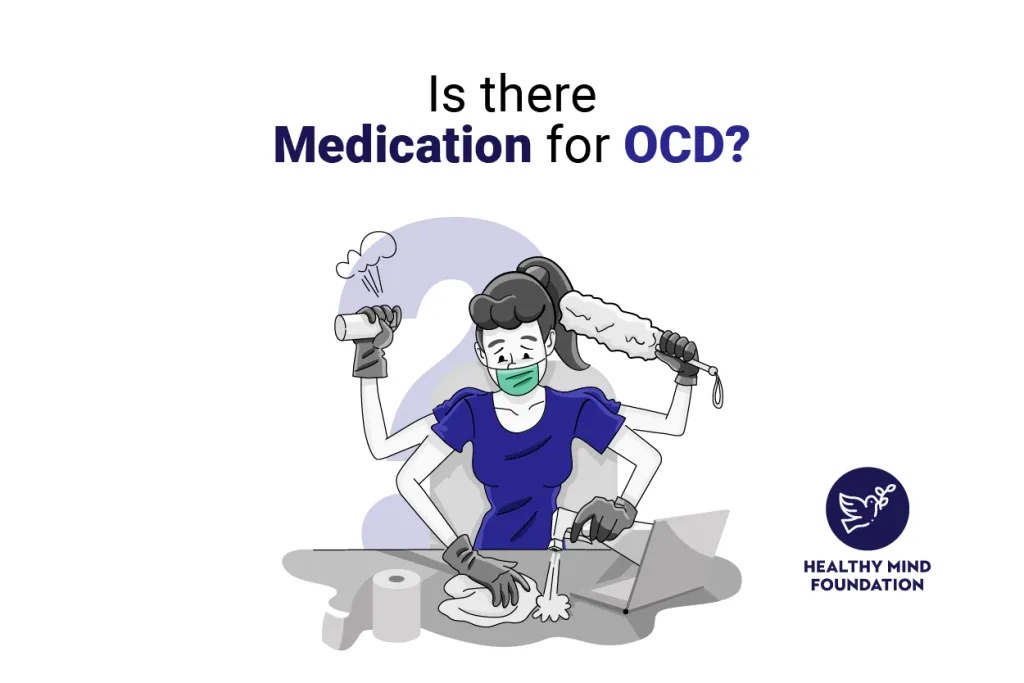Obsessive-Compulsive Disorder (OCD) is a mental health condition characterized by intrusive thoughts (obsessions) and repetitive behaviors (compulsions). While therapy is often a primary treatment approach for OCD, medication can also be beneficial in managing symptoms for some individuals.
Understanding OCD Medication
Medication for OCD aims to reduce the frequency and intensity of obsessive thoughts and compulsive behaviors. It works by targeting neurotransmitters in the brain, such as serotonin and norepinephrine, which are believed to play a role in OCD symptoms.
Types of Medication for OCD
There are several classes of medication commonly used to treat OCD, including:
- Selective Serotonin Reuptake Inhibitors (SSRIs)
- Serotonin-Norepinephrine Reuptake Inhibitors (SNRIs)
- Tricyclic Antidepressants (TCAs)
- Other medication options, such as antipsychotics or anti-anxiety medications
Effectiveness and Side Effects of OCD Medication
SSRIs are often considered the first-line treatment for OCD due to their effectiveness and relatively mild side effects. Common SSRIs used to treat OCD include fluoxetine, fluvoxamine, sertraline, and paroxetine. SNRIs and TCAs may also be prescribed if SSRIs are ineffective or poorly tolerated.
While medication can be effective in reducing OCD symptoms, it may take several weeks to months to see full benefits. Additionally, individuals may experience side effects such as nausea, insomnia, or sexual dysfunction. It's essential to work closely with a healthcare provider to find the right medication and dosage that balances symptom relief with tolerable side effects.
Combination Therapy for OCD
In some cases, a combination of medication and therapy, such as cognitive-behavioral therapy (CBT) or exposure and response prevention (ERP), may be the most effective approach for managing OCD. Therapy can help individuals learn coping strategies and develop skills to challenge obsessive thoughts and reduce compulsive behaviors.
Factors to Consider When Taking OCD Medication
Before starting medication for OCD, it's essential to consider factors such as:
- Medical history and any pre-existing conditions
- Potential interactions with other medications or supplements
- Pregnancy or breastfeeding status
- Personal preferences and treatment goals
Alternative Treatments for OCD
In addition to medication and therapy, alternative treatments such as acupuncture, mindfulness meditation, or dietary supplements may complement traditional approaches to OCD management. However, it's essential to discuss these options with a healthcare provider before incorporating them into your treatment plan.
Lifestyle Changes to Support OCD Management
Making lifestyle changes such as regular exercise, maintaining a healthy diet, getting adequate sleep, and reducing stress can also support OCD management. Establishing a routine and practicing self-care techniques can help individuals better cope with OCD symptoms and improve overall well-being.
Myths and Misconceptions About OCD Medication
There are several myths and misconceptions surrounding OCD medication, such as the belief that medication alone can "cure" OCD or that it's only for severe cases. It's essential to debunk these myths and provide accurate information about the role of medication in managing OCD symptoms.
Personal Experiences With OCD Medication
Hearing about others' experiences with OCD medication can provide valuable insight and support for individuals considering or currently taking medication for OCD. Sharing personal stories can help reduce stigma and encourage open conversations about mental health treatment.
Conclusion
Medication can be an effective tool in managing Obsessive-Compulsive Disorder (OCD) symptoms, but it's essential to work closely with a healthcare provider to find the right treatment approach for you. Whether used alone or in combination with therapy, medication can help individuals with OCD regain control of their lives and improve their overall quality of life.
FAQs
-
Are there any natural remedies for OCD?
- While some individuals find relief from OCD symptoms through lifestyle changes or alternative treatments, these should be discussed with a healthcare provider before trying.
-
How long does it take for OCD medication to work?
- It can take several weeks to months to see full benefits from OCD medication, and dosage adjustments may be necessary during this time.
-
Can I stop taking OCD medication once my symptoms improve?
- It's essential to work with a healthcare provider to taper off medication gradually, as abruptly stopping can lead to withdrawal symptoms or a recurrence of symptoms.
-
Are there any long-term side effects of OCD medication?
- While most side effects of OCD medication are mild and temporary, some individuals may experience long-term effects such as weight gain or sexual dysfunction.
-
Can children and adolescents take medication for OCD?
- Medication for OCD can be prescribed to children and adolescents under the guidance of a pediatrician or child psychiatrist, but it's essential to monitor for potential side effects and adjust treatment as needed.



No comments yet